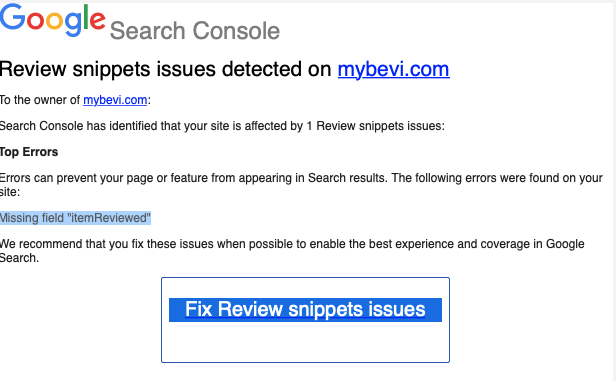Cryptocurrency has emerged as a revolutionary digital asset class that offers investment opportunities and the potential to generate passive income.
In this modern financial landscape, knowing how to make passive income with cryptocurrency can be a game-changer for investors seeking to diversify their portfolios and secure their financial futures.
With strategies such as staking, lending, yield farming, and dividend-paying cryptocurrencies, cryptocurrency holders can earn regular income without actively trading or managing their investments.
However, navigating the world of cryptocurrency passive income can come with risks and challenges, including market volatility, regulatory changes, scams, and security threats. This is why it's crucial to understand the best strategies, investment options, and legal considerations to make informed decisions.
This comprehensive guide will explore the ins and outs of generating passive income with cryptocurrency, providing insights, tips, and answers to commonly asked questions to help you build a sustainable and profitable cryptocurrency portfolio. Get ready to unlock the potential of cryptocurrency and take control of your financial destiny.
Best Strategies for Generating Passive Income with Cryptocurrency
Generating passive income with cryptocurrency requires careful planning and strategic decision-making.
Here are some of the best strategies that can help you maximize your earnings and create a sustainable stream of passive income:
Staking involves holding and "staking" a certain amount of cryptocurrency in a designated wallet or platform to support the network's operations and validate transactions. In return, you can earn staking rewards, typically a percentage of the staked cryptocurrency. Staking is often used by proof-of-stake (PoS) cryptocurrencies like Cardano (ADA), Tezos (XTZ), and Polkadot (DOT). Staking is relatively low-risk compared to other strategies, as it does not involve actively trading or lending.
Lending: Lending platforms allow you to lend your cryptocurrency to borrowers in exchange for interest payments. This can be a profitable way to earn passive income, especially if stablecoins like USDC or DAI are pegged to a stable value. Lending platforms like BlockFi, Celsius Network, and Nexo offer competitive interest rates on various cryptocurrencies, allowing you to earn interest on your holdings.
Yield Farming: Yield farming, or liquidity provision, involves providing liquidity to decentralized exchanges (DEX) or liquidity pools and earning fees in return. By depositing your cryptocurrency into these pools, you can make a portion of the trading fees generated by the DEX or liquidity pool. However, yield farming can be more complex and risky, involving exposure to impermanent loss and potential smart contract risks. Popular yield farming platforms include Uniswap, SushiSwap, and PancakeSwap.
Dividend-Paying Cryptocurrencies: Some cryptocurrencies offer dividend-like payouts to their holders. These cryptocurrencies distribute some revenue or profits to token holders, similar to traditional stocks paying dividends. Examples of dividend-paying cryptocurrencies include Pundi X (NPXS), VeChain (VET), and NEO (NEO). However, it's important to research and chooses reliable projects with a proven track record of paying dividends.
Masternodes: Masternodes are nodes on a blockchain network that perform additional functions and require a certain amount of cryptocurrency to be "locked" as collateral. In return, controller node operators can earn rewards for supporting the network's operations. Masternodes are commonly used in cryptocurrencies like Dash (DASH), PIVX (PIVX), and Zcoin (XZC). However, setting up and managing a controller node can be technically complex and require a significant upfront investment.
It's important to note that all these strategies come with risks, including market volatility, regulatory changes, security threats, and potential scams. It's crucial to thoroughly research, understand the risks, and choose reputable platforms before engaging in any cryptocurrency passive income strategy.
Exploring Different Cryptocurrency Investment Options
Cryptocurrency offers various investment options for individuals seeking to diversify their portfolios and potentially generate significant returns.
Here are some of the different cryptocurrency investment options to consider:
Bitcoin (BTC)
Bitcoin, the original and most well-known cryptocurrency, is often considered a long-term investment option due to its established history, limited supply, and growing adoption as a digital store of value. Investors can buy and hold Bitcoin with the expectation of its value appreciating over time. However, it's important to note that Bitcoin prices can be highly volatile, and investing in Bitcoin involves risks.
Altcoins
Altcoins refer to all cryptocurrencies other than Bitcoin. Altcoins include various cryptocurrencies with varying use cases, technologies, and growth potential. Investing in altcoins can be riskier than investing in Bitcoin, as they may be subject to higher price volatility and have a higher risk of failure. Conducting thorough research, analyzing market trends, and assessing the potential of specific altcoins can be crucial for successful investing in this category.
Initial Coin Offerings (ICOs) and Initial Exchange Offerings (IEOs)
ICOs and IEOs are fundraising mechanisms used by cryptocurrency projects to raise capital by issuing their tokens. Investors can participate in ICOs or IEOs by buying tickets during the fundraising period in the hope of their value appreciating after the project's launch.
However, ICOs and IEOs can be high-risk investments, subject to regulatory scrutiny, potential scams, and uncertain outcomes. Careful due diligence is essential before investing in ICOs or IEOs.
Exchange-Traded Funds (ETFs)
Cryptocurrency ETFs are investment funds that track the performance of a basket of cryptocurrencies, providing investors with exposure to multiple cryptocurrencies in a single investment.
Cryptocurrency ETFs can be a convenient option for diversifying cryptocurrency investments, as they offer a diversified portfolio without the need to purchase and manage multiple cryptocurrencies individually. However, it's important to carefully assess cryptocurrency ETFs' fees, liquidity, and regulatory landscape before investing.
Cryptocurrency Mining
Cryptocurrency mining involves using specialized computer hardware to validate transactions and secure the blockchain network in exchange for newly created cryptocurrencies. Mining can be a profitable investment option for individuals with technical knowledge and access to affordable electricity, allowing them to earn freshly made cryptocurrencies.
However, mining requires high upfront costs for hardware and electricity, and the profitability can be affected by various factors, including cryptocurrency prices, mining difficulty, and electricity costs.
Decentralized Finance (DeFi)
DeFi is a rapidly growing sector within the cryptocurrency ecosystem that offers a wide range of investment options, including lending and borrowing platforms, decentralized exchanges, yield farming, and liquidity provision.
DeFi allows investors to participate in various financial activities without intermediaries, providing the potential for higher returns and exposing investors to additional risks, such as smart contract vulnerabilities and regulatory uncertainties. Thorough research and understanding of the DeFi ecosystem are crucial before investing in this category.
Stablecoins
Stablecoins are cryptocurrencies pegged to a stable value, often to a fiat currency like the US dollar. Stablecoins provide a less volatile investment option compared to other cryptocurrencies, as their value is designed to remain stable.
Stablecoins can be used for various investment strategies, such as lending, yield farming, and as a hedge against market volatility. However, it's important to assess the stability and transparency of the pegging mechanism of stablecoins before investing.
Risks and Challenges of Generating Passive Income with Cryptocurrency
While generating passive income with cryptocurrency can be an enticing opportunity, it's important to understand and be aware of the risks and challenges that come with it.
Here are some key risks and challenges to consider:
Volatility
Cryptocurrency prices are highly volatile and can experience significant fluctuations in short periods. This volatility can result in substantial losses, especially if investments are not properly managed, or an investor's risk tolerance is not considered. It's crucial to clearly understand the risks associated with cryptocurrency price volatility and be prepared for potential losses.
Regulatory Risks
Cryptocurrencies are subject to regulatory scrutiny in many jurisdictions. Regulatory changes or crackdowns on cryptocurrency exchanges, ICOs, IEOs, and other investment options can impact the viability and legality of generating passive income with cryptocurrency. It's important to stay updated with the regulatory landscape in your country or region and comply with relevant laws and regulations.
Security Risks
Cryptocurrency investments are vulnerable to various security risks, including hacking, phishing, scams, and theft. Improper storage of cryptocurrencies, such as using insecure wallets or exchanges, can result in the loss of funds. Implementing robust security measures, such as using hardware wallets, enabling two-factor authentication, and being cautious of phishing attempts, is crucial to protect your investments.
Technology Risks
Cryptocurrencies and blockchain technology are still relatively new and evolving rapidly. Investing in new and unproven cryptocurrencies or projects can pose technology risks, including potential vulnerabilities in smart contracts, scalability issues, and technological obsolescence. Thoroughly researching and understanding the technology behind a cryptocurrency or project is essential to assess its potential risks and challenges.
Lack of Regulation and Investor Protection
Unlike traditional financial markets, cryptocurrency is largely unregulated, exposing investors to risks such as fraudulent schemes, market manipulation, and lack of investor protection. It's important to exercise caution and conduct thorough due diligence when investing in cryptocurrency to minimize the risks associated with the lack of regulation.
Liquidity Risks
Cryptocurrency investments may face liquidity risks, particularly in smaller cryptocurrencies or tokens with low trading volumes. Limited liquidity can make buying or selling cryptocurrencies at desired prices difficult, resulting in slippage or difficulties in exiting investments. It's important to consider the liquidity of a cryptocurrency or investment option before committing funds.
Lack of Predictable Income
Generating passive income with cryptocurrency is not guaranteed and may not always provide a stable and predictable income stream. Revenue generated through mining, staking, lending, or other investment options may fluctuate based on various factors, including cryptocurrency prices, network fees, and market demand. It's important to carefully assess the potential income generation and associated risks before investing in any cryptocurrency-based income strategy.
Building a Diversified Cryptocurrency Portfolio for Passive Income
Building a diversified cryptocurrency portfolio is a prudent approach to generating passive income. Diversification can help spread risk across different cryptocurrencies and investment options, reducing the impact of volatility and other threats.
Here are some strategies to build a diversified cryptocurrency portfolio for passive income:
Invest in Established Cryptocurrencies
Investing in well-established cryptocurrencies such as Bitcoin (BTC) and Ethereum (ETH) can be a core part of a diversified portfolio. These cryptocurrencies have a longer track record, larger market capitalization, and more widespread adoption, which can provide relatively more stability than newer or smaller cryptocurrencies.
Include Different Types of Cryptocurrencies
Diversifying across different types of cryptocurrencies can provide exposure to different market segments and investment opportunities. For example, stablecoins, cryptocurrencies pegged to a stable asset such as a fiat currency, can offer a relatively stable source of passive income through interest-bearing accounts or lending platforms.
Explore Staking and Masternodes
Staking and controller nodes are mechanisms some cryptocurrencies use to secure their blockchain networks and provide passive income to holders. Staking involves locking up a certain amount of cryptocurrency and participating in the network's consensus process, while controller nodes require running a full node with additional requirements. Researching and investing in cryptocurrencies that offer to stake or controller node rewards can be a way to earn passive income while supporting the network.
Consider Yield Farming and DeFi
Yield farming and decentralized finance (DeFi) have gained popularity recently as ways to earn passive income with cryptocurrencies. Yield farming involves providing liquidity to decentralized exchanges (DEXes) or lending platforms in exchange for rewards in the form of tokens or fees.
DeFi platforms offer various investment options, including lending, borrowing, and liquidity provision, which can provide passive income opportunities. However, it's important to thoroughly research and understand the risks associated with DeFi and yield farming, as they can be more complex and carry higher risks than traditional investment options.
Diversify across Exchanges and Platforms
Utilizing different cryptocurrency exchanges and investment platforms can diversify a cryptocurrency portfolio. Other businesses and venues may offer additional investment options, interest rates, and terms, allowing for a diversified approach to passive income generation. Choosing reputable and secure exchanges and media is important to minimize security and regulatory risks.
Set Realistic Expectations
Setting realistic expectations about the potential passive income generated from a diversified cryptocurrency portfolio is crucial. Cryptocurrency markets are highly volatile, and revenue generated from different strategies may vary. Conduct thorough research, analyze historical data, and consult with professionals to set reasonable expectations and avoid overreliance on passive income from cryptocurrencies.
Regularly Monitor and Rebalance the Portfolio
Building a diversified cryptocurrency portfolio requires regular monitoring and rebalancing. Keep track of the performance of different cryptocurrencies, investment options, and platforms to ensure the portfolio remains aligned with investment goals and risk tolerance. Rebalance the portfolio periodically to maintain the desired diversification and optimize passive income generation.
Managing Taxes and Legal Considerations for Cryptocurrency Passive Income
Managing taxes and legal considerations is important for generating passive income with cryptocurrency. As cryptocurrencies are subject to various tax laws and regulations in different jurisdictions, it's crucial to understand the tax implications and legal requirements to ensure compliance and avoid potential legal issues.
Here are some key considerations for managing taxes and legal aspects of cryptocurrency passive income:
Familiarize Yourself with Tax Laws
Cryptocurrency tax laws can vary widely by country and even by state or province within a country. Researching and understanding the tax laws and regulations applicable to cryptocurrencies in your jurisdiction is important. This may include income tax, capital gains tax, and other relevant tax obligations. Stay updated with any changes in tax laws related to cryptocurrencies to ensure compliance.
Keep Accurate Records
Keeping accurate records of all cryptocurrency transactions, including passive income earned from various sources, is crucial for tax reporting. Maintain records of transactions, investment costs, and other relevant details to accurately calculate gains or losses and report them appropriately on your tax return.
Seek Professional Advice
Cryptocurrency tax laws can be complex, and seeking professional advice from a qualified tax professional or accountant can help ensure compliance and optimize tax planning strategies. A tax professional can guide you on tax implications, deductions, and other legal considerations related to cryptocurrency passive income based on your financial situation.
Be Aware of AML/KYC Regulations
Anti-Money Laundering (AML) and Know Your Customer (KYC) regulations often apply to cryptocurrency transactions, especially on exchanges and other platforms. Be aware of your jurisdiction's AML/KYC requirements and comply with them to avoid legal issues and penalties.
Understand Local Regulations
Apart from tax laws, there may be other local regulations related to cryptocurrency passive income that you need to be aware of. For example, some jurisdictions may require obtaining licenses or permits for certain cryptocurrency-related activities. Research and understand local regulations that apply to your cryptocurrency passive income activities and ensure compliance.
Consider Estate Planning
Cryptocurrency is considered properly in many jurisdictions, and estate planning is an important consideration for managing cryptocurrency assets. Develop a plan for passing on your cryptocurrency assets to heirs or beneficiaries in the event of your passing. Consult with legal professionals to ensure your cryptocurrency assets are included in your estate planning documents and are transferred according to your wishes.
Keep Security Measures in Place
Protecting your cryptocurrency assets and ensuring the security of your transactions is also crucial from a legal standpoint. Use strong passwords, enable two-factor authentication, and utilize secure wallets and exchanges to safeguard your cryptocurrency holdings and prevent unauthorized access or theft.
Conclusion: Secure Your Financial Future with Cryptocurrency Passive Income
Cryptocurrency has emerged as a promising asset class for generating passive income, providing individuals new opportunities to secure their financial future. By understanding the best strategies for generating passive income with cryptocurrency, exploring different investment options, managing risks and challenges, building a diversified portfolio, considering taxes and legal considerations, and engaging in long-term planning, investors can increase their chances of success.
However, it's important to note that cryptocurrency markets can be highly volatile and have inherent risks. It's crucial to conduct thorough research, seek professional advice when needed, and understand the risks associated with cryptocurrency investing. Proper risk management, diversification, and adherence to legal and tax regulations are essential for long-term success.
Cryptocurrency passive income can offer financial independence, diversification, and growth potential with the right approach. Whether you're a beginner or an experienced investor, developing a well-thought-out investment plan and staying informed about the market can help you navigate the challenges and capitalize on the opportunities presented by cryptocurrency.
In conclusion, cryptocurrency passive income can be a valuable addition to your financial portfolio, but it requires careful planning, risk management, and long-term vision. By following the best practices and strategies discussed in this article, you can work towards securing your financial future with cryptocurrency passive income.
Frequently Asked Questions (FAQ):
Q: What is a passive income with cryptocurrency?
A: Passive income with cryptocurrency refers to regular income from investments without actively trading or managing them.
Q: How can I generate passive income with cryptocurrency?
A: You can generate passive income with cryptocurrency through strategies like staking, lending, yield farming, and dividend-paying cryptocurrencies.
Q: What are some popular investment options for cryptocurrency passive income?
A: Popular options include staking coins like Cardano (ADA) or Tezos (XTZ), lending platforms like BlockFi or Celsius, and liquidity provision on decentralized exchanges (DEX) like Uniswap or PancakeSwap.
Q: What are the risks and challenges of generating passive income with cryptocurrency?
A: Risks include market volatility, regulatory changes, scams, and security threats. Challenges may include technical complexities, choosing reliable platforms, and managing taxes.
Q: How can I build a diversified cryptocurrency portfolio for passive income?
A: You can diversify your portfolio by investing in different types of cryptocurrencies, using various passive income strategies, and regularly reviewing and rebalancing your investments.

.png)






